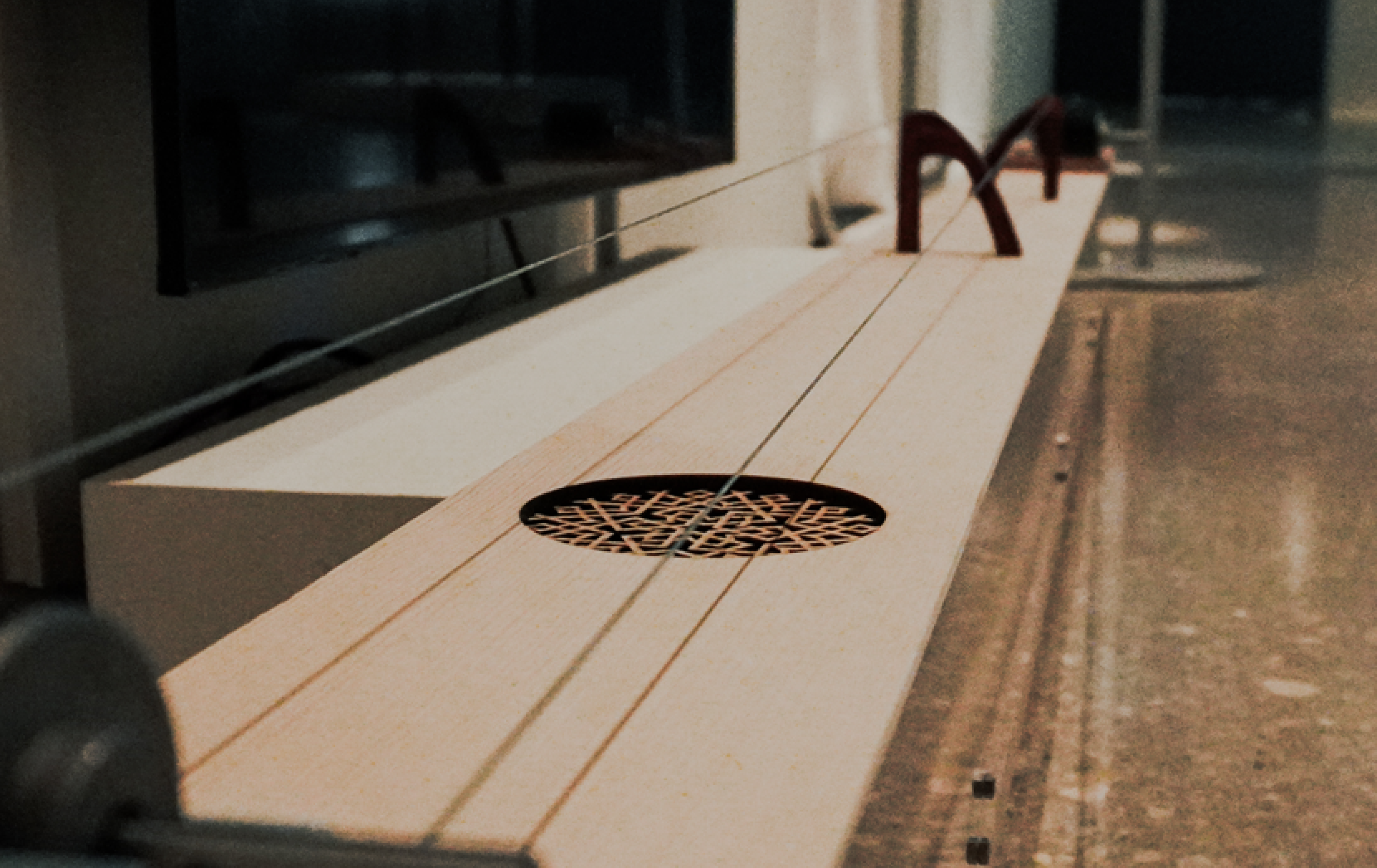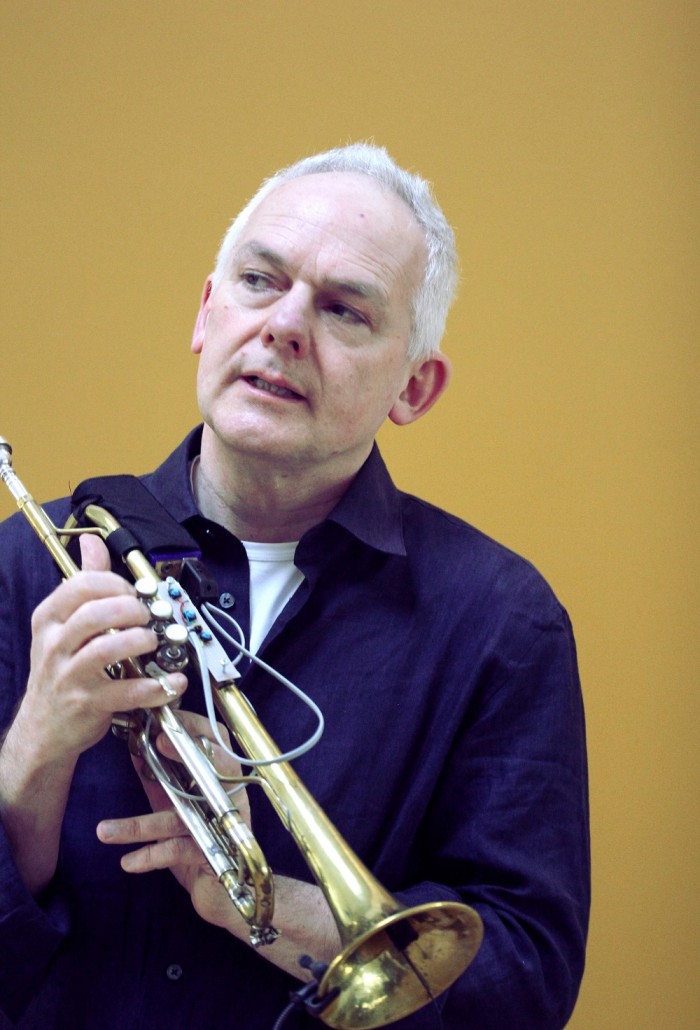
Date and location
from July 1, 2025 until July 9, 2025
Orpheus Instituut
Sound Craft Summer School
Callfrom July 1, 2025 until July 9, 2025Deadline: 5 May 2025
The Music, Thought and Technology (MTT) research group at Orpheus Instituut presents a summer course for sound artists, composers and performers. Sound Craft is a practical, project-based opportunity to further your artistic practice. Participants will develop individual projects in conceiving and crafting new objects, interfaces and instruments, in both hardware and software.
Register nowYou might be a master’s or doctoral researcher, or an independent artist - you may be a composer, sound artist, improviser, instrumentalist, or media archaeologist. You will have a degree of experience and technical facility. Selection will be made on the basis of your project proposal and its role in your artistic practice. We are looking for artists who are interested in working through and developing their skills into an artistic output: performance, installation…
Your project will be supported by MTT expertise in interface design, hardware hacking, microcontrollers, coding, electronic music, composition and instrument building (acoustic and electronic). Orpheus offers an 8-channel studio, maker space (laser cutter, 3d printing, CNC machine, basic electronics and woodworking), research and performance spaces. You will be allocated an individual mentor, share the research of MTT, and take part in wide-ranging discussions and a final presentation.
This event is presented to you by Music, Thought and Technology
Mentors
Andrea Agostini
Magno Caliman
Juan Parra Cancino
Jonathan Impett
Elisabeth Salverda
Chonglian Yu
Andrea Agostini
Andrea Agostini’s main areas of interest include composition of vocal, instrumental and electronic music; algorithmic musical formalisation and notation; generative and interactive music systems; sound synthesis, analysis and processing; and everything happening at the intersection of different musical practices and idioms.
An EP of Algorithmic music [music]
Dull Catastrophes and Love Songs [video]
bach: automated composer's helper [software]
Magno Caliman
Magno Caliman works with software and hardware by investigating electronic, mechanical, and programmable technical objects in his art making. He crafts objects which explore microcontrollers, repurposed and custom made electronic circuits, and programming languages, while transiting between experimental music performance and gallery settings with exhibitions and installations.
Transcription series [solo exhibition]
Arduino live coding [performance]
Juan Parra Cancino
Juan Parra Cancino’s areas of expertise bridge historical and contemporary music practices. On one hand, his experimental live interpretations of early electronic works explore the performative, analytical, and reconstructive dimensions of vintage electronic repertoire and setups. On the other hand, his work with networked and telematic technologies in music performance investigates the creative potential of distributed systems and the concept of the "expanded concert venue".
An illustrative example that brings both areas into dialogue is his experimental rendition of Karlheinz Stockhausen’s Solo, in which telematic technology was used to reintroduce an element of the piece otherwise only present in recordings into the live concert moment.
On Stockhausen’s Solo(s): Beyond Interpretation [article]
Stockhousen Solos network [video]
Jonathan Impett
Jonathan Impett is a composer, improviser, trumpet player, researcher and Director of Research at Orpheus Instituut, long occupied with the new kinds of musical artefact that emerge from an evolving technological world. He brings experience in live electronics (Max/MSP), interactive systems, the improvisation-composition space, and instrument/installation design.
Presence and resonance [project]
Three states of wax [project]
Chonglian Yu
Chonglian Yu’s primary interests and expertise lie in multimedia composition, physical computing, and gamified interaction. He is currently working on experimental wearables with speculative narratives, employing parallel layers of iterative prototyping that combine DIY fabrication of physical objects with virtually mediated digital-twin prototypes developed in the Unity engine.
Social bot [video]
Gamer Duo [video]
Elisabeth Salverda
Elise is interested in the relationship between tuning, timbre, resonance and what an instrument can be; inspired by the pipe dreams and string theories of an experimental organ builder and instrument inventor from the early 20th century who made a “piano that sings”, her current research explores the shaping of soundwaves through physically filtering and modulating space. She has designed sound for exhibitions, theatre, and listening concerts.
Practical
Cost: €250, to be paid upon acceptance. You will be offered 7 days of workshops, 7 lunches and 1 dinner.
Venue: All activities will take place on the premises of the Orpheus Instituut, Korte Meer 12, 9000 Gent, Belgium.
Accommodation: We will send a list of suggestions, but arrangements and costs are to be made by you.
Any questions may be addressed to communication@orpheusinstituut.be
The Orpheus Instituut embraces diversity and strives to be an inclusive environment for everyone.
This Summer School will run in conjunction with Historical Piano and Violin Summer Academy 2025.
Application
We invite you to submit your project idea on the airtable below, by May 5, 2025.
Please upload the following:
- A link to example(s) of your work
- A letter of motivation, explaining why you wish to participate and your project idea for the Summer School
- Your CV
Applicants will be informed by May 15.
Successful applicants will be invited to a Zoom meeting held in early June, during which we will share our expectations and together fine-tune our goals. Sound Craft is made available to anyone interested in participating, regardless of institutional affiliation. Support for the cost of fees is available for those in need.
At Sound Craft we aim to create a safe and inclusive environment for all those involved; we particularly encourage applications from historically under-represented groups in the field. As organisers, we commit to taking that into account during evaluation of the applications received.
Any questions may be addressed to communication@orpheusinstituut.be





